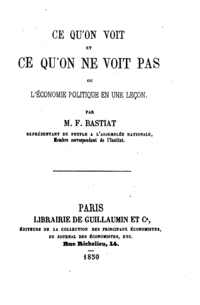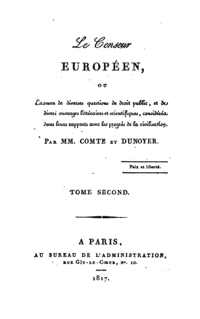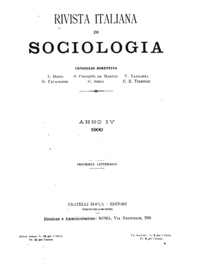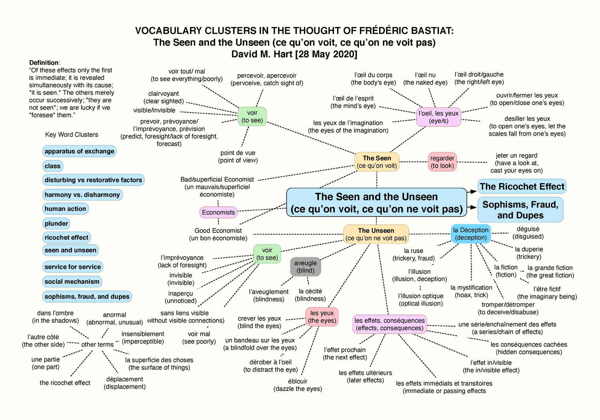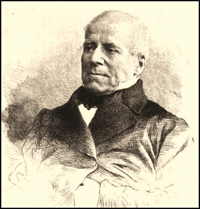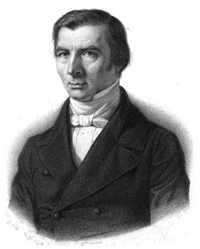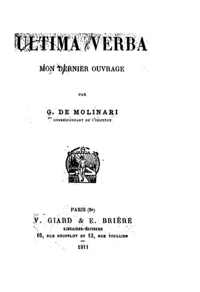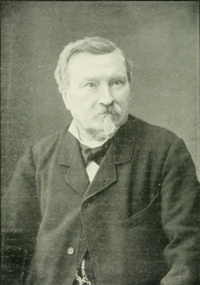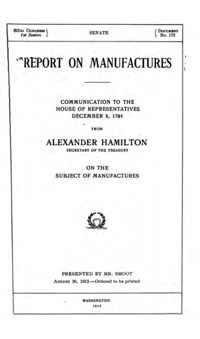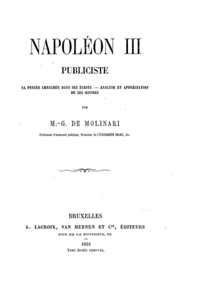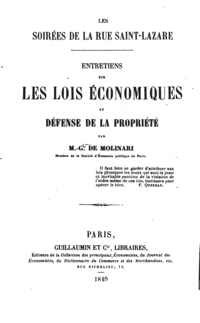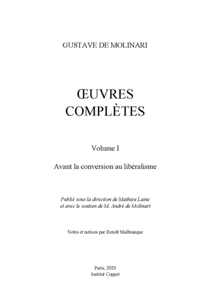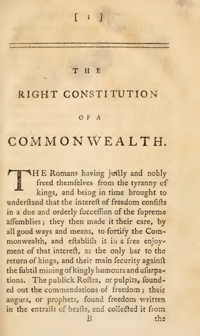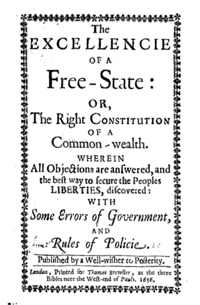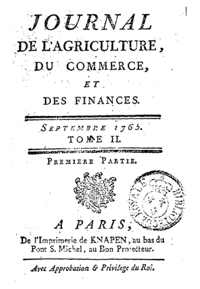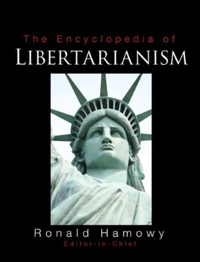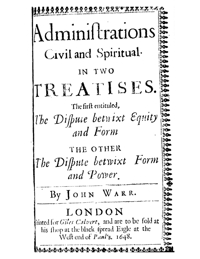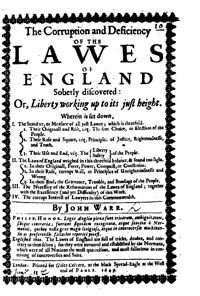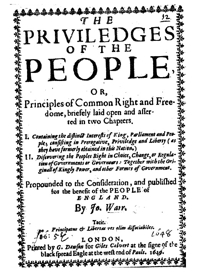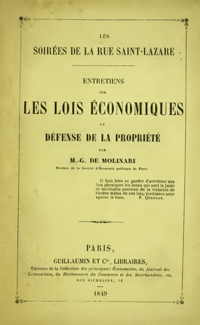
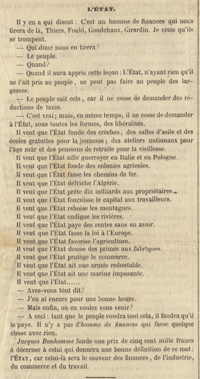
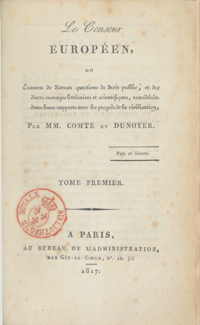
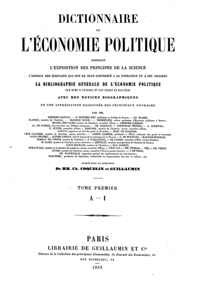
|
Papers I am working on:
- A revised version of my "An Introduction to the Theory and History of the Classical Liberal Tradition".
- "Trump the "Tariff Man" and his Critics: An Intellectual History of the ongoing battle between (neo-)Mercantilism and Free Trade"
- "The Seven Pillars of (Economic) Wisdom of the Paris School of Political Economy: Part 1 - Gustave de Molinari and the Dictionnaire de l'Économie politique"
Additions to the Library:
- new: a translation of Ambroise Clément, "De la spoliation légale" (On Legal Plunder), Journal des économistes (July, 1848). Written a couple of years before Bastiat's long discussion of "legal plunder" in "The Law", Clément discusses 6 kinds of plunder (or "theft" as he also calls them): aristocratic, monarchical, regulatory, industrial, philanthropic, and administrative theft. English in enhancecd HTML; and the French original in facs. PDF and enhanced HTML.
- new: my translation of Molinari's chapter on "Public Consumption" in Cours d'économie politique (1863) on applying economic analysis to the functions of the state and opening all of its functions to free and open competition: in enhanced HTML.
- new: My translation of Molinari's pathbreaking book of 1849 in which he argues that ALL public goods can and should be provided by the free market, including police and defense services: Soirées on rue Saint-Lazare: Discussions about Economic Laws and a Defence of Property. It is bare bones draft with only Molinari's footnotes included. In enhanced HTML. See also the French original in enhanced HTML and facs. PDF.
- new: A Comparative and Bi-Lingual Edition of Frédéric Bastiat's essay on "The State" (1848-49). I analyse the changes and additions Bastiat made to the three versions of his famous essay published between June 1848 and April 1849 in order to counter the growing appeal of the socialist groups in the elections in the first year or so of the Second Republic. It also includes a translation of the manifesto of the Montagnard party which was the main socialist group in the Chamber of Deputies and therefore a focus of Bastiat's criticism in April 1849. In enhanced HTML.
- new: a translation of Frédéric Bastiat, La Loi (1850): The Law: The Students Edition (2025) with copious notes; in enhanced HTML
- new: a translation of Molinari's important lecture given in Brussels in 1852 on the "material interests" of class. It is here that he coins the wonderful term "les mangeurs de taxes" (tax eaters) who exploit and live off "les payeurs de taxes" (the payers of taxes): "Revolutions and Despotism considered from the Perspective of Material Interests" (1852) in enhanced HTML. See aslso the original French version in facs. PDF and enhanced HTML.
- There are several anthologies I have edited of French classical liberal thinkers which I would like to see translated into English. Most of them are accompanied by a lengthy introduction explaining why they are important and the intellectual context in which they were written. They are:
- Charles Comte and Charles Dunoyer, An Anthology of Articles from Le Censeur (1814-1815) and Le Censeur européen (1817-1819) (2022). 35 essays in French in enhanced HTML
- translated: Charles Comte, "On Social Organisation and its Relationship with the Means of Subsistance of Nations", Le Censeur européen, T.2 (March 1817), pp. 1-66. In enhanced HTML
- translated: Charles Comte, "On the Multiplication of the Poor, of Office-Holders, and of Pensioners", Le Censeur européen, T.7 (28 mar. 1818), pp. 1-79. In enhanced HTML.
- translated: Charles Dunoyer, "On the Influence exerted on Government by the Salaries paid for carrying out Pubic Functions", Le Censeur européen T.11 (Feb. 1819), pp. 75-118. In enhanced HTML.
- Frédéric Bastiat, La Spoliation, la Classe, et l’État (Plunder, Class, and State): An Anthology of Texts (1845-1851) (2023)
- 12 items plus some letters in French in enhanced HTML
- editor's introduction: "Bastiat's Theory of Plunder, Class, and the State" (2021) in HTML
- Gustave de Molinari, The Bicentennial Anthology of His Writings on the State (1846-1911) (2023)
- 24 items in French in enhanced HTML (the texts are preceded by my introduction)
- editor's introduction: just my introductions to the above texts in HTML
- see also my paper, “Was Molinari a true Anarcho-Capitalist?: An Intellectual History of the Private and Competitive Production of Security” (2019) in HTML
- translated so far:
- "On the Production of Security", JDE (Feb. 1849) in HTML
- "Soirée 11", Les Soirées de l'a rue Saint-Lazare (1849) in HTML
- Chap. 10 "Les gouvernements de l'avenir" (The Governments of the Future) from L’évolution politique et la Révolution (1884) enhanced HTML
- Gustave de Molinari, Thoughts on the Future of Liberty (1901-1911) (2023)
- 3 items in French in enhanced HTML
- an English translation of these in enhanced HTML
- editor's introduction: "Gustave de Molinari and the Future of Liberty: ‘Fin de Siècle, Fin de la Liberté'?" (2000) in HTML
- Gustave de Molinari, The Collected Articles from the Dictionnaire de l'Économie politique (1852-53) (2015)
- 33 items in French in enhanced HTML
- 33 items translated into English (draft) in enhanced HTML
- editor's introduction: “The Struggle against Protectionism, Socialism, and the Bureaucratic State: The Economic Thought of Gustave de Molinari, 1845-1855” (2016) in HTML
- new: Gustave de Molinari, The Collected Articles from the Dictionnaire de l'Économie politique (1852-53) translated into English, most for the first time (7 were translated and published in the late 19th century in the US). I put online this collection of 30 entries in French originally in 2019 as part of my celebrations of the 200th anniversary of Molinari's birth. It was updated in December 2023 in enhanced HTML. My translation is a first draft and is available in enhanced HTML. It includes three additional pieces written by the publisher Guillaumin, the editor Clément, and Molinari who was one of the senior editors, which explain why the DEP project was undertaken and what they hoped to achieve. The Coppet Institute in Paris has recently republished Molinari's entries as part of their Œuvres complètes de Gustave de Molinari (2019-). They were split across two volumes which were published in 2022 and 2023, and are only available for downoad in PDF. My edition includes them all in one volume and will be available in multiple electronic formats. It will also include an expanded introduction to the collection by yours truly. See the Coppet Institute's edition here
- entries in DEP T1 (1852): OC vol. 9 "En exil dans son propre pays (1852)", no. 062, pp. 49ff. [PDF elsewhere]
- entries in DEP T2 (1853): OC vol. 10 "Deux années de transition (1853-1854)", no. 069, pp. 127 ff. [PDF elsewhere]
|








